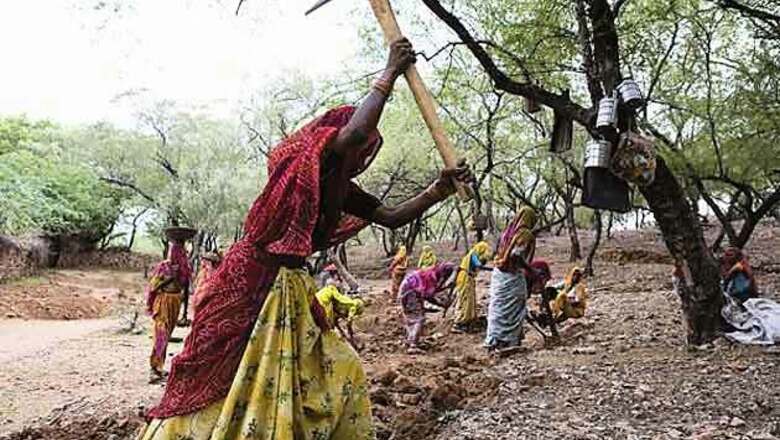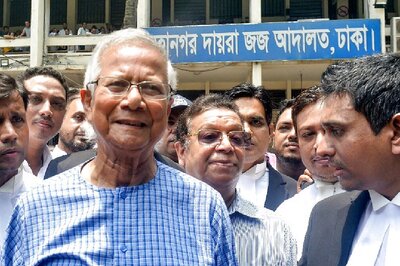
views
New Delhi: Calling for an urgent revamp of previous UPA government's flagship job guarantee programme, Mahatma Gandhi NREGA, the Economic Survey on Wednesday said it needs to be made more development oriented and prevent its misuse.
The survey also said there is a need for revamp or reorganisation of some of the ongoing social-sector schemes, including the National Rural Livelihoods Mission (NRLM), National Rural Health Mission (NRHM) and Sarva Shiksha Abhiyan (SSA).
The survey said that despite huge outlays, most schemes have not achieved desired results. "The outlays for the different schemes have not often translated fully into outcomes owing to the poor delivery mechanism," it
Pointing out flaws in the Mahatma Gandhi National Rural Employment Guarantee Act (MNREGA), the pre-budget document said: "Though the act is panchayat-centric and demand based, on the ground there is lack of principal role in planning, execution and monitoring by the panchayati raj institutions (PRI's) especially the gram sabha".
"The awareness level in the gram sabha/PRIs is very low also resulting in lack of ownership, ill-conceived planning and shelf of projects, and weak or even no social audit," it added.
MNREGA programme is aimed at providing not less than 100 days of guaranteed wage employment in a financial year to every rural household. The outlay for the scheme in 2013-14 was Rs 33,000 crore.
The survey further said that in some places only female workers were interested in availing of work as market wage for males is much higher, resulting in only small works of lesser utility being undertaken instead of big and tangible
"The need for community projects is becoming less important as probably such works have already been completed or are on the brink of saturation or on account of lack of common interest in public works," it said.
There is a need to avoid projects with single or small number of beneficiaries and the use of MNREGA funds in a supply-driven mode.
"So there is an urgent need to revamp the MGREGA to prevent its misuse and make it development oriented programme creating tangible and meaningful assets and infrastructure including tourism related infrastructure or some large agriculture related activities," it added.
Regarding NRLM, the survey said the mismatch in the scope of activities and large amount of investment made in infrastructure like buildings and equipment needs to be looked into.
The NRLM aims at organising one woman member from each household into affinity-based women self-help groups (SHGs) and their federations at village and higher levels by 2024-25.
During 2013-14, Rs 22,121.18 crore of SHG bank credit has been disbursed. For 2014-15, Rs 3,560 crore has been allocated to NRLM, the survey said.
The survey said that while NRHM has been successful in reaching affordable health care services to the rural population, there are problems like under-utilisation of the well-built infrastructure, either due to bad location of the centre or due to lack of transport/residential facilities for doctors and other staff, safety of women, and shortage of qualified doctors and nurses.
"There is also a need to consider PPP in this sector with careful regulatory oversight," it added.
Regarding SSA, the survey said that there is a need to revisit provision of school within 1 km of radius of every habitation in the Right to Education Act.
"The number of students in some places does not warrant separate classrooms and it has led to mushrooming of schools, with the infrastructure in the form of buildings wasted."
However, the survey advocated for use to IT technology for quick delivery, overlapping and detecting 'ghost' beneficiaries.
"Leveraging modern technology for efficient delivery of programmes, removing the multiple layers of governance, simplifying procedures, and greater participatory role by the beneficiaries can help in creating a better delivery mechanism."
The Direct Benefit Transfer (DBT) to Bank Account is one such example, it added.




















Comments
0 comment